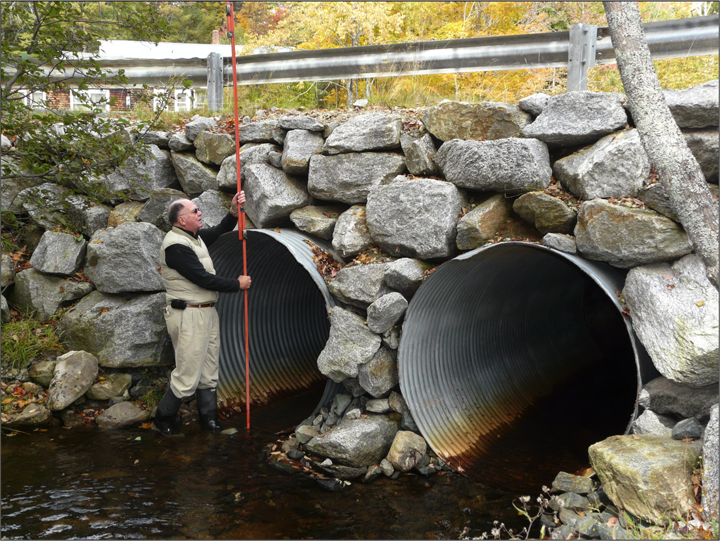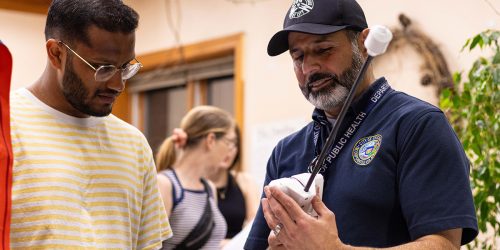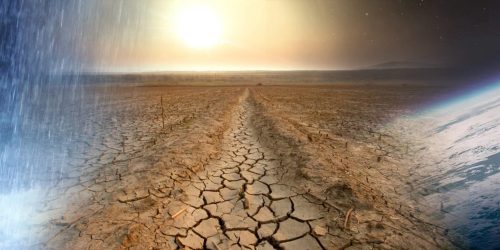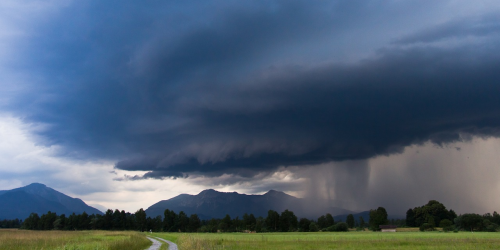NOAA’s Sectoral Applications Research Program (SARP) is announcing (a) five new awards for its competition focusing on “Extreme Events Preparedness, Planning, and Adaptation Within the Water Sector” totaling $867,651 and (b) three new awards for the Coping with Drought Initiative which supports the National Integrated Drought Information System totaling $507,000.

In the last five years, there has been at least one, billion‐dollar precipitation‐related event (i.e., flood or drought episode) in every state on the continental US. These events have made communities more aware of the potential impacts of future events in their locations as they have impacted individuals and communities’ lives, economic viability, and infrastructure. Recent floods have motivated communities to increase their efforts to incorporate climate science into their short and long‐term planning.
For FY18, SARP awarded grants focused on developing strategies for increasing community resilience in U.S. towns, municipalities or small cities planning for the impacts of extreme precipitation events (too much or too little water) on their civilian population. The work funded will focus on the impact of extreme events on water resources and water‐resource dependent activities (e.g., land use, watershed and water utility planning, emergency preparedness), specifically the connection between communication of risk and the design and implementation of risk mitigation and reduction strategies.
NOAA is particularly interested in developing early warning systems so that individuals and communities have sufficient time to prepare for an upcoming event. A goal of this call is to improve the nation’s decision support capabilities by exploring and improving upon linkages between extreme event forecasts and municipal/town/city planning agencies, the emergency planning sectors, and the operations of water, wastewater, stormwater, and urban drainage management services to the public. The funded proposals include direct work with decision makers.
The five new projects supported by SARP in FY18 include:
- Expanding Water Sector Climate Preparedness in the Intermountain West through Network-based Learning
- Lead PIs: James Arnott, Aspen Global Change Institute and Julie Vano, NCAR
- Co-PIs: Melissa Stults, Independent Contractor and Benét Duncan, WWA/CIRES/CU Boulder
- Valuing Prediction Systems from Equity Markets
- Lead PI: Derek Lemoine, University of Arizona
- Co-PI: Sarah Kapnick, NOAA GFDL
- Coupling the CHARM Platform with the No Adverse Impact Approach: A Participatory Decision Support System to Enable Plan Integration for Extreme Events
- Lead PI: Steven Mikulencak, Texas A&M AgriLife Extension Service, Texas Sea Grant; Texas Coastal Watershed Program
- Co-PIs: John Jacob, Texas A&M AgriLife Extension Service, Texas Sea Grant; Texas Coastal Watershed Program;Jeff Stone, Association of State Floodplain Managers
- Co-producing Climate Knowledge and Sustained Engagement in the Great Lakes in Support of Stormwater Management Adaptation
- Lead PI: Maria Carmen Lemos, University of Michigan, Great lakes Integrated Sciences and Assessments
- Co-PIs: Melissa Stults, Independent Contractor, Jenna L. Jorns, University of Michigan, Great Lakes Integrated Sciences and Assessments
- Building Resilience to Extreme Events and Water Hazard Planning in Remote, Rural Alaskan Communities
- Lead PIs: Sarah F. Trainor, University of Alaska – Fairbanks (UAF) Dr. Barry Keim, Louisiana State University (LSU)
- Co-PIs: Kevin Berry, UAA, Dr. Henry Penn, University of Calgary, Jean Edwards, LSU, Alan Black, LSU
SARP Coping with Drought Initiative Supporting the National Integrated Drought Information System (NIDIS)
Drought impacts regions differently. NIDIS is developing regionally focused Drought Early Warning Systems (DEWS) to work with new and existing networks of federal, tribal, state, local and academic partners to make climate and drought science usable and accessible for decision makers. The goal is to improve the capacity of stakeholders to monitor, forecast, plan for, and cope with the impacts of drought.
In FY18, the SARP portion of the Coping with Drought Initiative focused on advancing the NIDIS DEWS through an improved understanding of how to better provide early warning through enhanced language, metrics and joint decision spaces (e.g., calendars, etc.). The projects funded include:
The five new projects supported by SARP in FY18 include:
- Investigating the Role of Perceptions about Drought Information and Forecast Accuracy in Midwest Rainfed Agricultural Decision Making
- Lead PI: Ximing Cai, Department of Civil and Environmental Engineering, University of Illinois at Urbana-Champaign (UI)
- Co-PIs: Tatyana Deryugina Department of Finance, UI; Beth Hall, Midwestern Regional Climate Center, Illinois State Water Survey, Prairie Research Institute, UI; Gary Schnitkey, Department of Agricultural and Consumer Economics, UI
- Connecting Drought Early Warning to the Decision Making Needs of Specialty Crop Producers in the Midwestern United States
- Lead PI: Tonya Haigh, National Drought Mitigation Center, University of Nebraska-Lincoln (NDMC)
- Co-PIs: Jason Otkin, University of Wisconsin – Madison; Brian Fuchs, NDMC; Nicole Wall, NDMC
- Collaborators: Dennis Todey, USDA Midwest Climate Hub; Charlene Felkley, USDA Midwest Climate Hub; Martha Anderson, USDA Agricultural Research Service
- Innovating Approaches to Drought Communications with North Carolina Decision Makers
- Lead PI: Aaron Sims, North Carolina State University (NCSU)
- Co-PI: Rebecca Ward, NCSU, Kirsten Lackstrom, Carolinas Integrated Sciences and Assessments, University of South Carolina; Corey Davis, NCSU
SARP is a program in the Climate Program Office, within NOAA’s Office of Oceanic and Atmospheric Research. SARP has made a major impact in the water resource realm linking decision makers and scientists to improve understanding of how to use climate information in short and long-term decision making. This has been accomplished through (a) funding research projects related to water resources management, coping with drought, and community needs (b) managing a NIDIS-funded grant for the Drought Risk Management Research Center at the University of Nebraska (c) developing a Water Resources Dashboard with a number of water resource and planning foundations, associations and federations (d) crafting the Water Resource and Built Environment sections of the Climate Resilience Toolkit and (e) leading a study of the “Water Resource Strategies and Information Needs in Response to Extreme Weather/Climate Events”.





